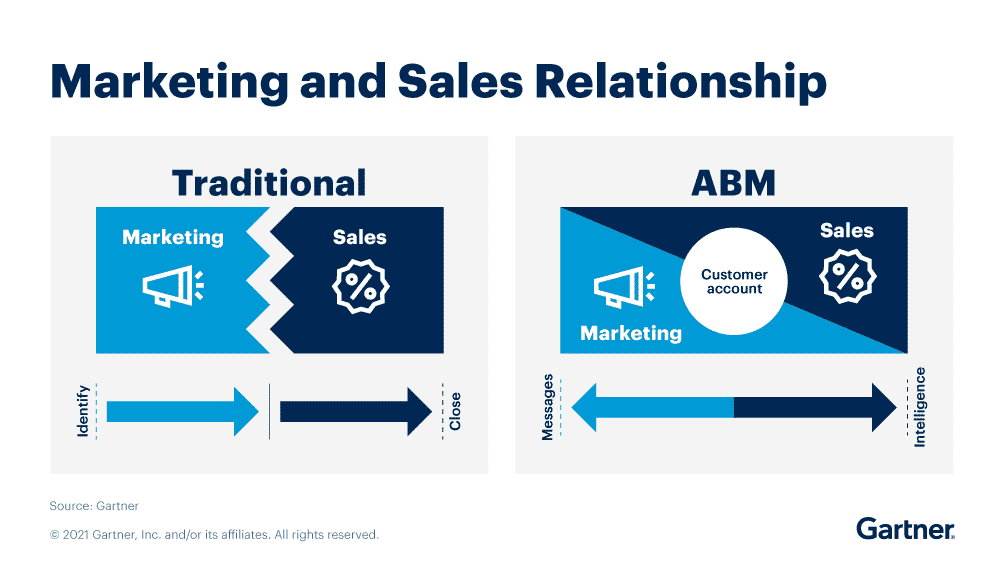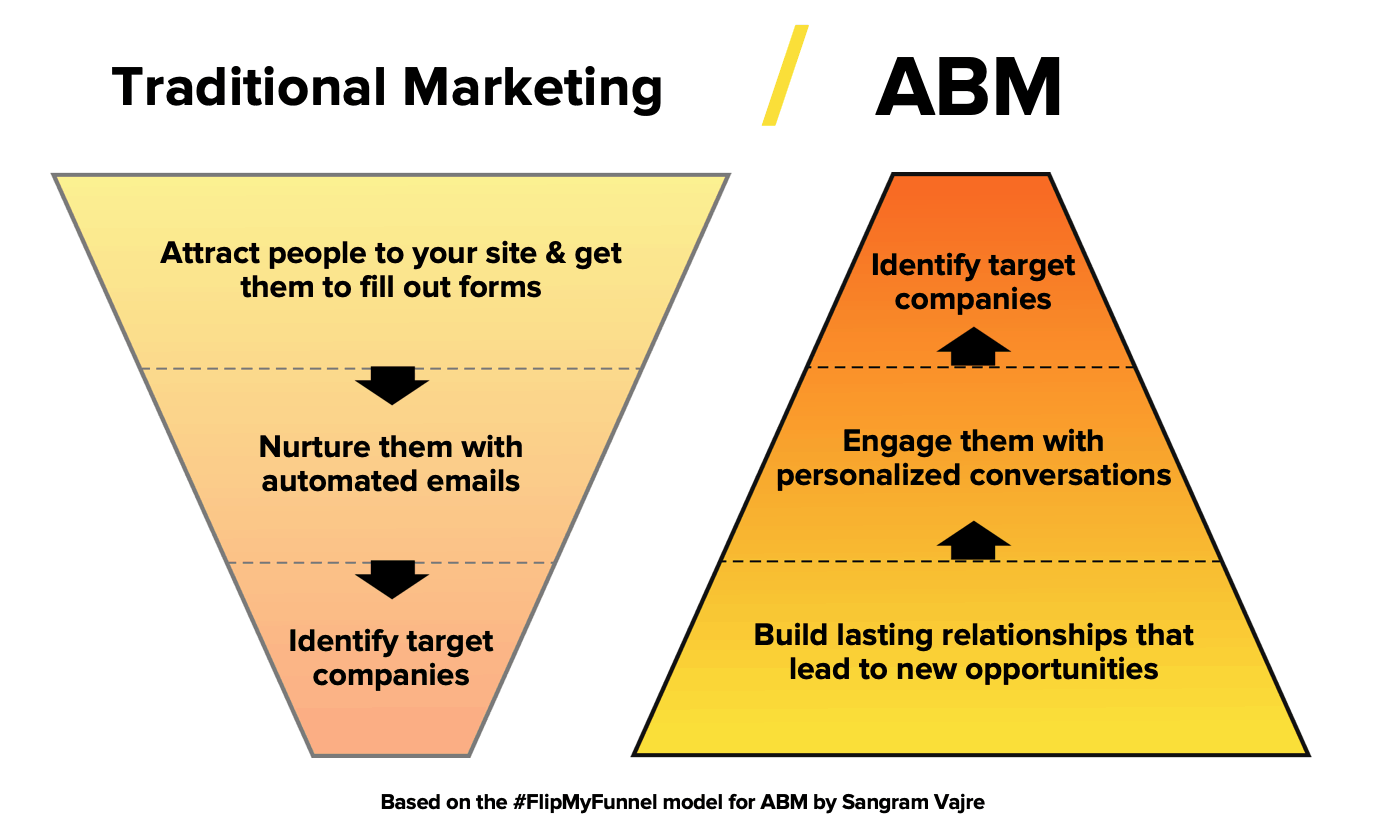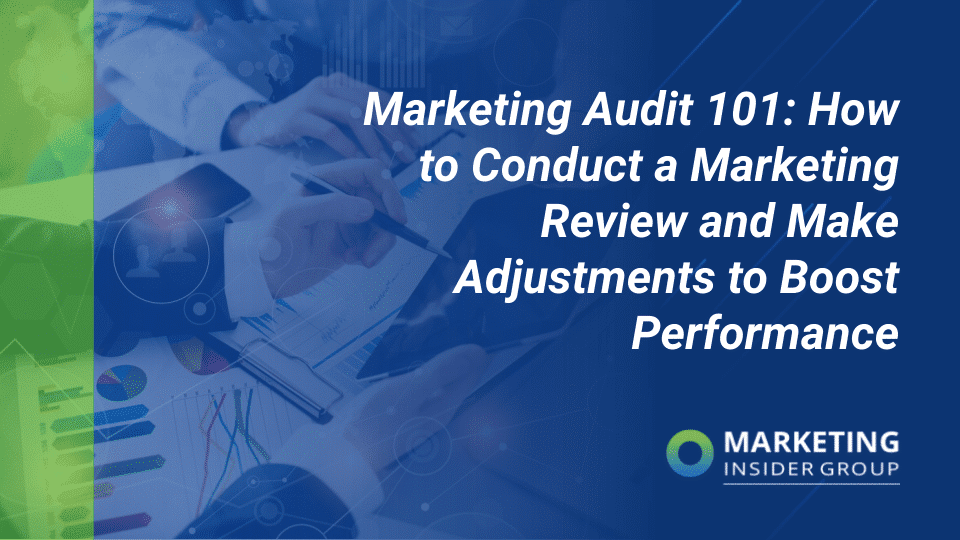
Is Account-Based Marketing Worth the Hassle?
How can you effectively target your ideal consumer? In short, who are the big money-making clients for your business, and how are you marketing to them? Most importantly, how can you improve your customer retention rates and contract value?
There are tons of strategies you could try, but only one will check all of these boxes at once. Answer: Account Based Marketing.
Account-Based Marketing (ABM) is a B2B strategic method where marketers communicate with a defined set of accounts as ‘markets of one’. It’s sometimes called “key account marketing” and is often used by enterprise-level sales teams. It requires the alignment of your sales teams and marketing teams to precisely target your ideal customer.
It’s a tricky strategy that once mastered can yield big results more efficiently than other methods and boost your ROI by targeting the best clients with personalized marketing.
ABM can also cover support for the after-sales customer lifecycle to help improve the overall experience of the customer, leading to better reviews and word-of-mouth recommendations for your business!
Quick Takeaways:
-
- Account-Based Marketing is about personalizing your marketing efforts directly toward your most profitable prospects.
- ABM helps weed out the less-profitable clients to maximize your profit ceiling.
- Creating systems that focus your time and resources on the accounts that are most likely to close will save you from wasting said time and resources.
Here’s an informational video by Zaryn @ Market & Hustle to get your feet wet:
ABM allows teams to effectively deliver:
- Strategy
- Planning
- Goal setting
- Insights
- Sales alignment
These are needed to achieve the team’s objectives when it comes to customer growth, loyalty, and retention.
Don’t just take our word for it, here’s a quote from Adobe’s Marketo.com:
“Account-based marketing is not a new concept, but it has recently experienced a resurgence due to evolving technology and a changing landscape. The implementation of an ABM strategy can help improve marketing ROI, drive attributed revenue, generate more conversions and qualified leads, and align sales with marketing.”
But, is account-based marketing worth the hassle of implementation? In this article, we’ve listed a few benefits and challenges to help you make a more informed decision.
Why should I use Account Based Marketing?

1. ABM Provides Huge Windows of Opportunity for Your Sales Team AND Marketing Team

Source: Gartner.com
There is often a disconnect between marketing and sales departments. ABM seeks to align them so they can work in tandem to deliver results. A benefit of ABM is this team-cooperation that leads to better overall account management and retention.
To make this happen, the sales team must provide marketing with useful feedback, and in return, the marketing team needs to provide relevant resources for qualifying prospects.
For instance, if a prospect (targeted originally by the marketing team) fills out a form on your website, it acts as a trigger for your sales team to start targeting other contacts from that company. This instantaneous trigger ensures that all key stakeholders are always kept up-to-date.
ABM thrives best when your marketing team and your sales team are on the same page. Optimizely.com says:
“Account-based marketing encourages marketing teams and sale organizations to work together, identifying target accounts, crafting customized campaigns for them, and working together to align and move individual accounts through the pipeline, both before and after lead conversion.”
In short, when the sales team and the marketing team sit down to find the best target accounts and create a direct marketing plan for said accounts, the magic begins!
2. ABM Can Increase Your Deal Size (and Revenue!)
ABM identifies the accounts that can generate the most revenue, which helps fuel the sales funnel with similar accounts. By reviewing the sales feedback, purchase history, and even buyer behavior, teams can better identify valuable types of accounts and focus resources on trying to close them.
In 2020 there was a 171% increase in average annual contract value after implementing Account-based Marketing. Considering the fact that ABM targets accounts that are the most likely to generate revenue, increasing is suddenly quite doable with ABM.
3. ABM Makes the Sales Cycle More Efficient and Maximizes Company Resources

ABM’s more targeted approach ensures that fewer resources are wasted. This is especially beneficial to teams with a limited budget like startups or small businesses.
Marketers are well aware of the many stages of the sales funnel. With a more targeted approach, your marketing and sales teams can drop unqualified leads right away to focus on the ones that are more likely to generate the most revenue. This cuts the length of the sales cycle, saving both time and resources.
Almost 85% of marketing professionals said that ABM provided huge benefits in terms of retaining and expanding their current client relationships. The fact that ABM is so focused on customer accounts means that marketing and sales activities are far more customer-driven.
Potential Obstacles and Challenges of ABM

Source: SmallBizDaily.com
Despite the fantastic benefits, you should be informed of the key issues and challenges facing companies using an ABM approach:
1. Issues with Ownership
For ABM to work, you need to assign a leader who will not just be in charge of connecting teams from sales and marketing, but will also act on the engagement opportunities with customers. Assigning accounts to sales people is not enough – there has to be an appointed leader who’s in charge of rallying the troops.
2. Too Big Too Soon
Sure, ABM can be a key driver to success, but it doesn’t mean you should roll out ABM to hundreds of accounts all at the same time. This will not only end up overwhelming your teams, but the lack of control can also result in major errors and potential losses. It’s best to start small and build momentum over time.
3. Sustaining Efforts
ABM is not a one time, big time deal. Like blogging, you need to commit to consistency. You can’t build relationships overnight; you need time and multiple touchpoints. Once you’ve established a momentum, you need to devote resources to sustaining it.
4. Tracking Progress
Like every other campaign, you need metrics to measure the success of your initiatives. For ABM to work, you need to monitor and compare your efforts to calculate its value to the organization. Essentially, you have to develop your own tracking system with your own metrics and goals to benchmark performance.
So, Is It Worth It?

Account-Based Marketing is definitely worth implementing in almost any circumstance. The proper alignment of sales and marketing teams alone is a good enough reason to try.
BUT – you have to remember that ABM is not an overnight sensation, and a single massive rollout may not bring the exact results you’re looking for. Setting your expectations low initially and high long-term.
Use of this strategy requires planning, alignment, consistency, and most importantly – time. The key is to start small and monitor ABM success on your test accounts.
Once you’ve determined its value, you can replicate it on a much larger scale.
Do you want to use some of the marketing strategies seen here on MIG’s site but need some help or advice? Check out our weekly blog content service or schedule a free consultation. Get started today and generate more traffic and leads for your business!






